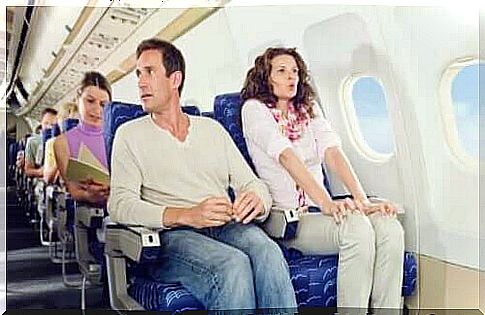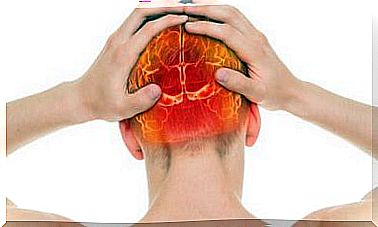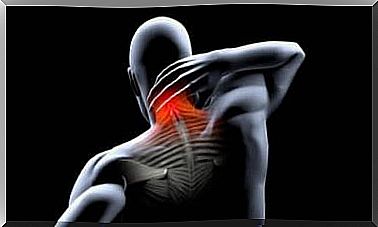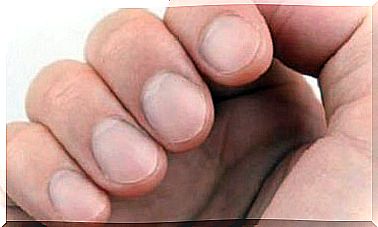Hodophobia Or The Fear Of Traveling: Causes And Solutions
The anxiety of leaving what is safe and familiar, the fear of having an accident, of getting lost in a city, of being a victim theft, etc. Fear of travel is a type of phobia linked to a traumatic experience from the past.

Orthodophobia or the fear of travel describes a very specific type of psychological condition. It defines people who feel anxious about simply leaving their comfort zone, leaving their home, which is familiar and over which they are in control. However, other phobias can also be added. Like the fear of taking a plane or a car and having an accident.
Fortunately, most people associate travel with leisure and pleasure. However, some people perceive the holidays to be a great source of stress.
Indeed, it is a period of great trips, trips to visit family, times to discover new places, new cities and new countries. This type of situation can generate great anxiety in many people.
Hodophobia or the fear of travel: causes and symptoms
Even if it seems surprising to us, there is an indisputable fact: phobias are the most common psychiatric reality. We all have fears, unique dimensions that we avoid and that may or may not condition our lives. However, phobias represent a type of irrational fear and an intense form of anxiety that we cannot or cannot control.
There are strategies and confrontation mechanisms that can be put in place. So what is this type of psychological condition?
Sigmund Freud explained in one of his letters to a colleague that traveling caused him anxiety. However, we do not know what the father of psychoanalysis really suffered from, if it was a real phobia. Because, hodophobia or the fear of travel is very limiting. It’s one thing to have mild anxiety and another to be unable to get out of the house.
This type of psychological disorder defines an irrational and crippling fear that is accompanied by intense symptoms. In other words, people who are afraid of traveling do not always manage to get on the train, or even sit on the plane, or get to the hotel they have booked. This fact can completely condition the life of these individuals.
In addition, it should be noted that the DSM-5 (Manual of diagnosis and statistics of mental disorders) classifies hodophobia or the fear of travel as a specific type of phobia or even within anxiety disorders. Now let’s see the symptoms described for a correct diagnosis.

How does hodophobia or the fear of travel manifest itself?
Like any other, this type of phobia manifests itself in multiple ways. Each person expresses their irrational fears differently. Some are very intense, while others are less intense. There is, however, a set of common emotional characteristics:
- Afraid of leaving the house, of separating from what is familiar and safe.
- Intense anxiety about taking the car, plane or train.
- Fear of having an accident.
- Being ashamed of the fact that others perceive our phobia.
There are also cognitive symptoms:
- The person keeps thinking about all the negative things that could happen. Usually she is unable to control these negative and catastrophic thoughts.
- The imagination leads to a spiral of disastrous images: accidents, kidnappings, terrorist attacks.
- Blockage in the face of concrete events, such as making the trip reservation. Inability to focus attention on anything else.
- Confusion and difficulty making decisions.
Finally, it is important to mention the physical manifestations of the disorder. Orthodophobia or the fear of traveling presents many physical signs, more or less major:
- Dizziness and tachycardias.
- Stomach pain and intestinal upset at the thought of taking a trip.
- Sweating with dry mouth.
Some studies, such as research by the University of California for example, indicate that there is a direct relationship between phobias and panic attacks. In other words, in the case of hodophobia, it is possible to come up with extreme situations in which the person panics at the idea of taking a trip.
What is the cause of hodophobia?
One thing to keep in mind about phobias is that there isn’t always an obvious trigger. Phobias of non-specific origin are quite common and hodophobia is one of them. Nevertheless, research work carried out at the University of Marseille by Doctor René Garcia brings out the following points on the neurobiology of fear:
- The origin can be found in traumatic events of the past. In the case of fear of travel, the person may have suffered an accident in the past or been the victim of a terrorist attack.
- Likewise, there may be a genetic or even a family model. For example, if our parents were also afraid of travel, planes or the boat.

What are the treatments ?
The most suitable coping mechanism for all phobias is cognitive behavioral therapy. In this approach, the following resources are generally applied:
- Exposure technique: it consists of bringing the person closer to phobic stimuli to work on thoughts and emotional reactions.
- Cognitive restructuring: it involves the patient being able to detect negative and irrational thought patterns in order to transform them into healthier approaches.
- Emotional management: Detecting crippling emotions, identifying them, giving them a name and then transforming them into calming and satisfying states is a key tool.
- Breathing and Relaxation Techniques: Hodophobia or fear of travel can also be improved through breathing and relaxation techniques. These are complementary resources to cognitive behavioral therapy.
- Virtual reality: nowadays, virtual reality is an effective resource in the treatment of phobias.
Phobias are paralyzing, it is essential to learn to manage them
Finally, we can say that any irrational fear can affect our quality of life. If we fail to deal with them, new phobias usually appear eventually and lead to a state where anxiety takes over. Let’s avoid reaching these limits, let’s not hesitate to ask for professional help.









